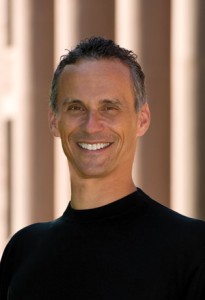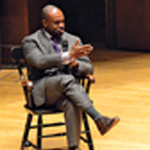PRESIDENT’S LETTER

Since assuming the presidency I have often returned to the themes of inclusion and diversity on campus. This year we are thinking about these themes again as we aim to strengthen the residential dimensions of learning.
At Wesleyan University our mission statement reminds us that we aim to prepare students “to explore the world with a variety of tools.” Diversity is an aspect of the world we expect our students to explore, turning it into an asset they can use. We expect graduates to have completed a course of study in the liberal arts that will enable them to see differences among people as a powerful tool for solving problems and seeking opportunities. We expect graduates to embrace diversity as a source of lifelong learning, personal fulfillment, and creative possibility. Selective universities want to shape a student body that maximizes each undergraduate’s ability to go beyond his or her comfort zone to draw on resources from the most familiar and the most unexpected places.
For many readers of this magazine, the inclusion of women will count as the most decisive change in the student body. Wesleyan’s history with co-education has gone through different stages. Our experiment in the late 19th and early 20th century was truncated, but it did plant seeds that would be harvested later on. The women who came to campus from the late 1960s on have worked to create an educational environment free from discrimination. There have been moments of pain and frustration, but we are dedicated to continuing the progress toward genuine inclusion.
We honor that history and extend it as we take on with renewed energy the project to eradicate sexual and gender violence from our university. We do so not because of political correctness or issues of liability. We do so because freedom from gender and sexual violence is essential to our mission as a community of learning.
The civil rights movement was a crucial element of the university’s history in the 1960s. Wesleyan has been a leader in recruiting black and Hispanic students, often working with community-based organizations and other groups to identify young men and women who would thrive on this campus. But recruiting students is just the first step in a process of inclusion, and we still have work to do in ensuring that undergraduates from all walks of life have every opportunity for success.
In more recent years, some have mocked our efforts at being Diversity University and accused us of being Politically Correct University. The notion that faculty and students here are of one mind politically, or are cut culturally from the same cloth is anathema to me. One of the basic elements of campus culture should be to help students cultivate the willingness and ability to learn from material and people they might otherwise reject out of hand or ignore. Undoubtedly, this will often surprise students and sometimes upset them. When someone says “the professor, or the material, made me uncomfortable,” we should not immediately see this as a problem that needs fixing. Being made uncomfortable is a necessary component of a broad, open-ended education devoted to increasing one’s capacities. Of course, a climate of respect and non-violence is also crucial to learning, but if we truly value diversity, we should expect at some points to be made uncomfortable—because a real education forces us to re-examine our commitments, our beliefs. Re-examining, of course, does not always mean changing; sometimes those commitments and beliefs are reaffirmed in deeper ways.
Blacks and whites, abled and disabled people, atheists and religious people, conservatives and liberals should all be engaged in building a culture of generative discomfort. Creating a campus culture that values the desire to learn from unexpected and uncomfortable sources in a climate of support and respect is a key aspect of what it means to pursue our mission: “to build a diverse, energetic community of students, faculty, and staff who think critically and creatively and who value independence of mind and generosity of spirit.”
Our campus is not a “bubble” that keeps the world outside at bay. Our campus should be a place of inquiry at which “boldness, rigor and practical idealism” are put in the service of “the good of the individual and the good of the world,” to paraphrase Wesleyan President Willbur Fisk (1831). By building a more inclusive and dynamic campus community, we are encouraging everyone at Wes to use the lessons learned here, with “independence of mind and generosity of spirit,” to make a positive difference beyond the borders of the university.

